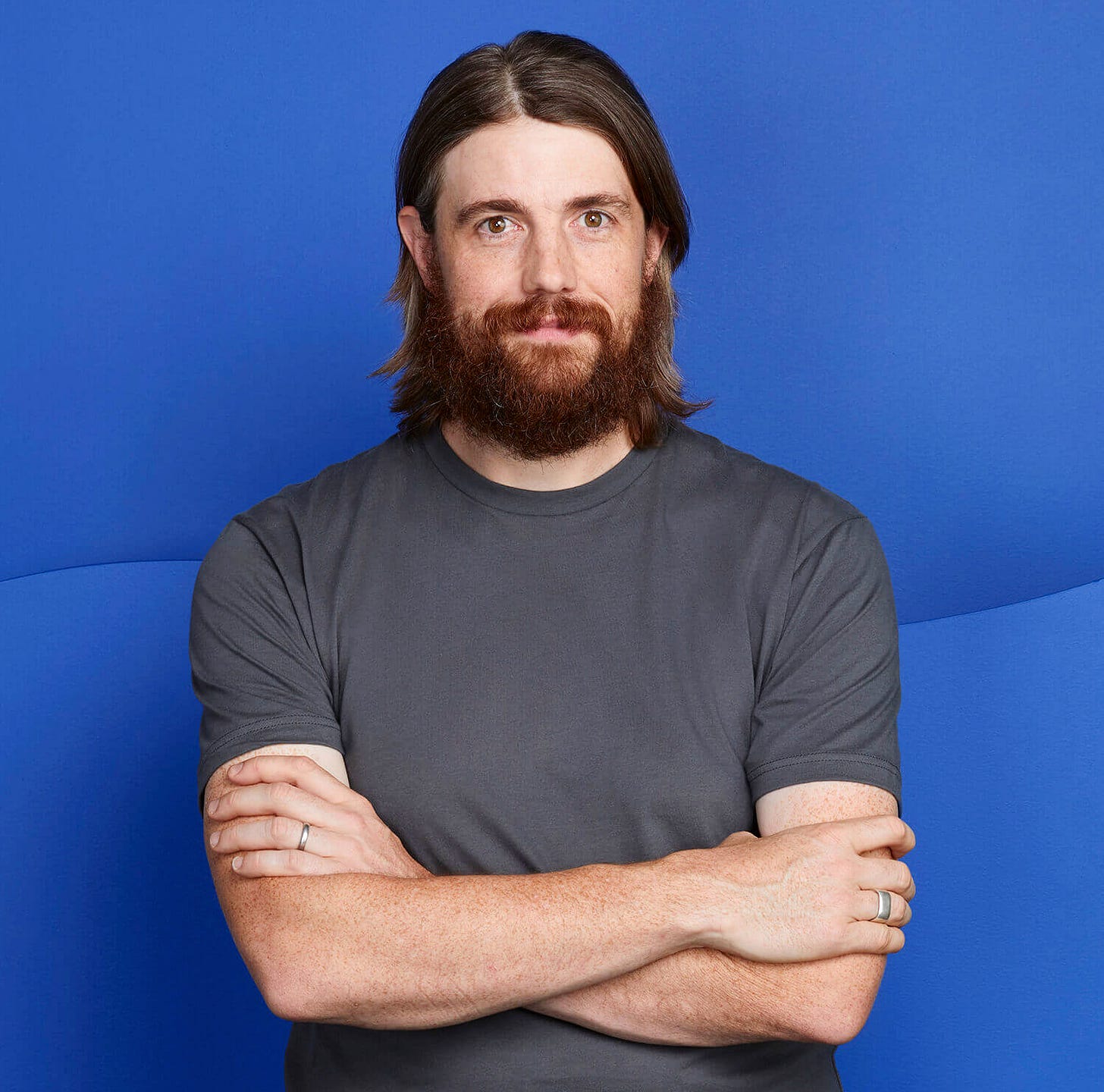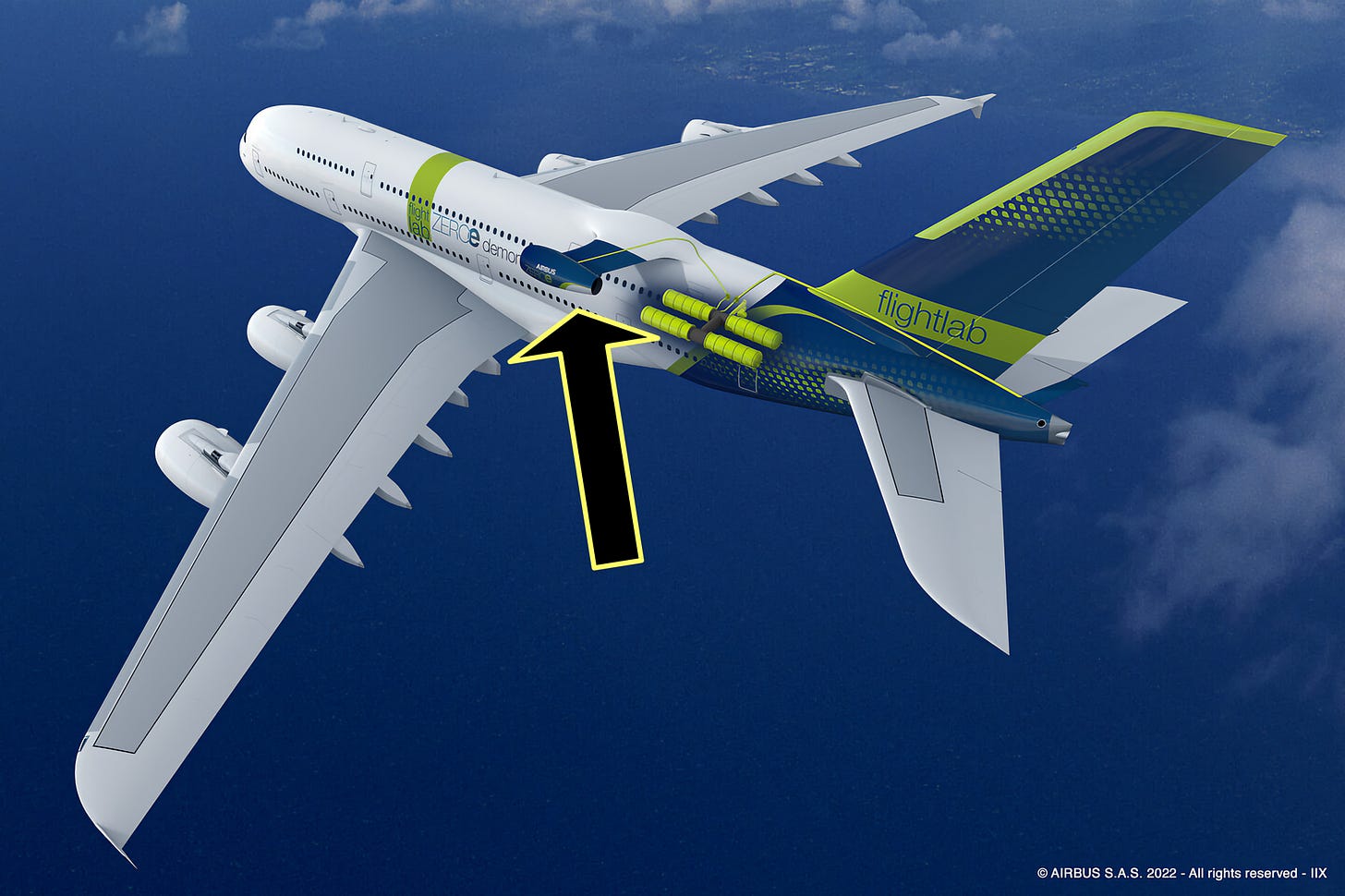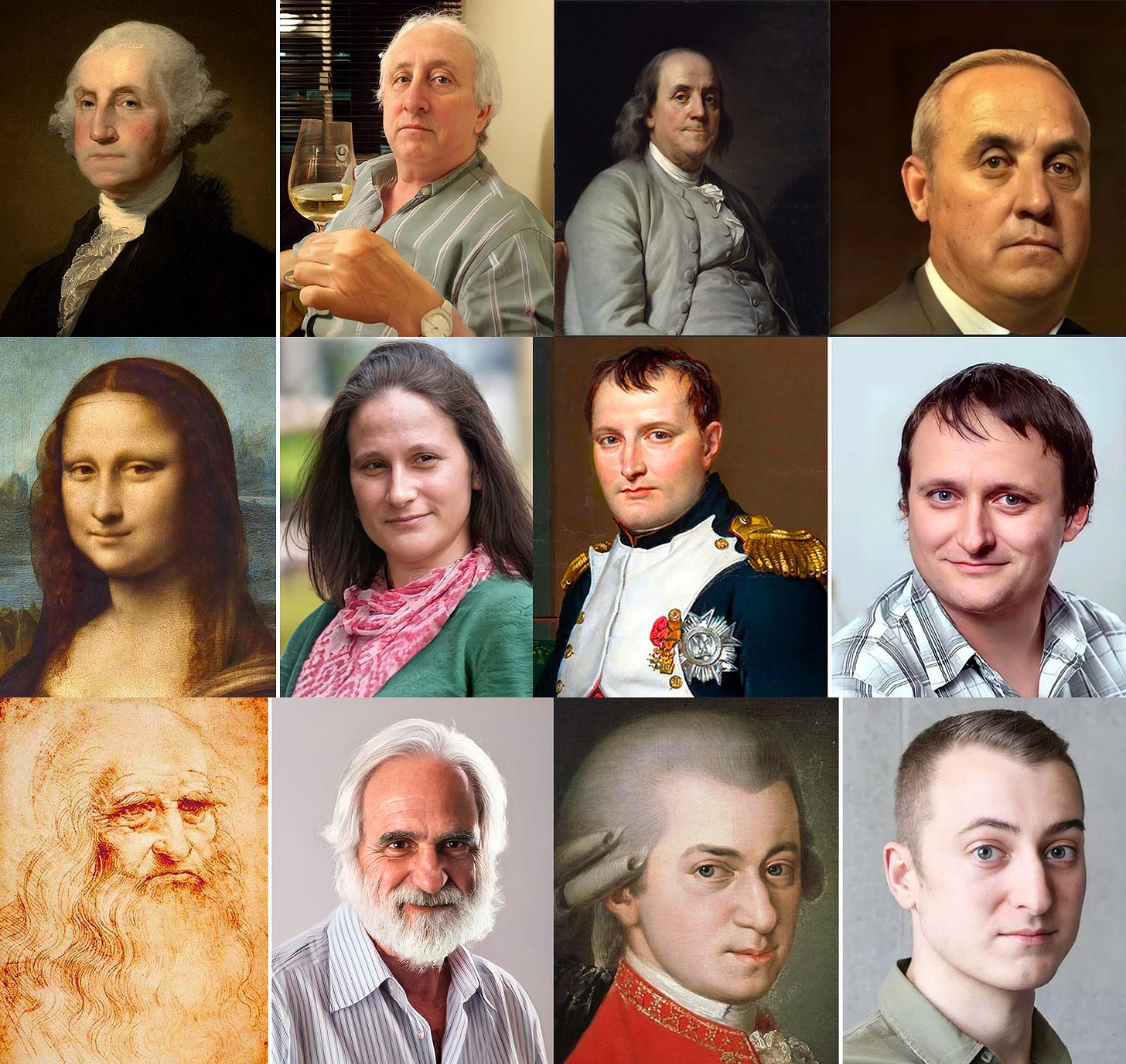245: Atlassian, Snowflake's Frank Slootman, Chasing Flow States, Roach Capital, Leverage, Airbus' Hydrogen Plane, North-Korea Hack, and AI Finds Historical Faces
"He’s like Dave Grohl’s younger brother."
Test ideas by experiment and observation. Build on those ideas that pass the test. Reject the ones that fail.
Follow the evidence wherever it leads. And question everything, including authority.
Do these things and the cosmos is yours.
—Ann Druyan
🌇🌃🌉 Cities have personalities.
When I think of New York City or San Francisco or Paris or London, some things come to mind that are a compressed idea of that city to me.
It doesn’t mean that it’s accurate or exhaustive, or that it’s up-to-date (there’s inertia to any “brand” and it takes some time for improvements or things getting worse to catch up with reality), but there’s still something.
This made me think about how there are so many gigantic, and possibly very interesting cities around the world for which my mental picture is extremely low-resolution.
I’ve got a few things for Shanghai, Delhi, Sao Paula, Cairo, Osaka, Karachi, Istanbul, Manila… But not nearly as much as I wish I had.
One of my tasks in life is to fill-in my mental map of the world, to better appreciate humanity in all its variety, and all the cool things that accidents of history have piled up in any location (for example, the HBO show ‘Treme’ — which I need to rewatch soon — has increased my appreciation for New Orleans and the surrounding areas quite a bit. I know it’s fiction, but like ‘The Wire’ with Baltimore, it feels like there’s plenty of that place’s essence in it).
🇷🇺 Russia’s two major exports are gas and gaslighting.
Has Scott Adams called Putin a ‘master wizard’ yet?
🎙 Yesterday, I released a podcast with friend-of-the-show Jimmy Soni (💚 🥃 ✍️) about his new book and much more (we nerd out on many other topics — startups, doing research, technology, hiring, Jiro Dreams of Sushi and Michael Jordan’s Last Dance, transferrable skills between disciplines, craftsmanship, how to become really good at something, etc).
It was a great experience, and is making me consider doing a bit more podcasting… 🤔
The medium just has very different strengths and weaknesses than the written word.
At the recommendation of friend-of-the-show David Senra (🎙📚) of the excellent Founders Podcast, I’ve signed up with Descript. It’s a really neat editing software for audio and video that basically uses ML to transcribe what you say into text, and as you edit the text on the page, it makes the cuts to the audio (if you delete a paragraph, that section gets cut out of the audio, if you remove a “um” only that word gets removed)
Very intuitive, but it also it seems very powerful under the hood if you want to do more advanced post-processing on your audio.
Here’s a promo video showing the main features of the software.
🧩 Last weekend I played Flash Point for the first time with friends.
You’re a group of firefighters breaching a burning house, and your goal is to find people and pets in the building before there’s too much structural damage and it collapses on you.
It’s well made, and the fire mechanism is clever, with explosions that spread fire rapidly and sometimes bust through walls…
I love that it’s a cooperative game. There are too few of those out there.
As a kid, I mostly played Starcraft and Doom in deathmatch mode, but once in a while, I loved to play in coop mode. It’s a different kind of fun to all be on the same team against the game.
📝 Nice piece on the design principles behind Obsidian, my note-taking app of choice:
Data will be local-first and plaintext
Links will be first-class citizens
The application will be extendable by others
The application will be optimized for performance
and will have powerful search capabilities
A few simple ideas, but taken *seriously*, make the app feel so different from the alternatives, IMO.
💚 🥃 Do you like what I’m doing? If “yes”, please consider becoming a supporter:
A Word From Our Sponsor: ⭐️ Tegus ⭐️
What makes a great investor isn’t pedigree or diplomas 🎓, it’s quality thinking and information 🧠
Tegus can’t provide the thinking for you, but on the information front, they’ve got you covered! 📚
With 25,000+ primary source expert calls covering almost any industry or company you may want to learn about, and the ability to conduct your own calls with experts, if you so choose, at a much lower cost than you’ll find elsewhere (70% lower than the average cost of ˜$400), this is the service to turbo-charge the depth and breadth of your knowledge 📈
⭐️ Get your FREE trial at Tegus.co/Liberty ⭐️
Investing & Business
🧠💆🏻 Chasing the “flow state” Dragon 🐉
Considering the demographics of who reads this, chances are good that you’re what is sometimes called a “knowledge worker”. Or maybe even, as friend-of-the-show and supporter (💚 🥃) Jim O’Shaughnessy would say, a “symbol manipulator”.
To us, the holy grail of work is the “flow state” (aka “being in the zone”), when you’re fully immersed in what you’re doing, with hyperfocus, everything else disappears and you feel directly connected to whatever you’re working on, time flies and progress is rapid, with insights popping up right and left. It feels oh-so-good.
While it’s great, Cal Newport makes an important point about this in episode 32 of his Deep Questions podcast:
The problem is that every once in a while work isn’t hard. You’re in a deep work mode and you fall into a flow state, and it feels really good and you lose track of time, and that’s actually an issue because it gives you the illusion that “oh, this is what work is like. I should be in this flow state all the time, I should feel really engaged”…
But here’s the thing: these flow states are nice, but they’re fleeting, and you can’t count on them, and you shoud not expect to have them all the time. [...]
You’re not going to get into a flow state doing… deliberate practice of complex skills, because deliberate practice is demanding and unpleasant and tends not to induce these pleasurable states.
Even when you’re doing performance-type deep work that can trigger flow states, it often doesn’t.
So I think that’s one place we get tricked, because there’s some parts of work that sometimes feel good. Don’t let that fool you, it’s like trying golf for the first time and having the misfortune of hitting the most perfectly square T shot, and you spend the next 15 years trying to get that again.
Work is hard, take pride in the difficulty… Flow states are great, cherish them when they hit, but don’t chase them.
I think it’s a good point.
I’ve heard this described as the difference between amateurs and professionals. Pros show up and do the work even when they don’t feel “inspired” or aren’t “in the mood” or rapidly getting into a flow state, while amateurs are easily discouraged when it becomes more difficult or less fun.
Too many people probably have a miscalibrated view of what their work should be like, and feel they’re in the wrong line of work because they’re not constantly deep in the zone… but even the greatest in various fields report things being hard for them, and flow states being rare. So don’t feel defeated if it’s also the case for you.
‘Atlassian Co-Founder Wants to Buy Australia’s Biggest Polluter’ (and shut it down)
In edition #241, I wrote about Michael Bloomberg’s campaign to close coal plants. Looks like he’s not the only billionaire going for the environmental-low-hanging fruits:
Mike Cannon-Brookes thought Australia’s biggest polluter wasn’t doing enough to curb its greenhouse gas emissions, so he sought to buy the company. [...]
[He] teamed up with Canada’s Brookfield Asset Management to try to acquire electricity generator AGL Energy, in a proposal valued at more than $3.5 billion. Central to their ambition is a plan to shut AGL’s coal-fired power plants years ahead of schedule and replace them with renewable energy.
AGL, which the Australian government’s Clean Energy Regulator says is Australia’s largest emitter of greenhouse gases, said Monday that it had rejected the takeover proposal as too low.
The company plans to close the last of its coal plants by 2045. [...] Australia relies on coal to generate 75% of its electricity, although the country has one of the highest adoptions of rooftop solar per capita
But that’s not all he’s doing:
Mr. Cannon-Brookes, 42, is described on Atlassian’s website as a “passionate clean energy evangelist” who five years ago helped to broker Tesla Inc.’s construction in South Australia of what was then the world’s largest lithium-ion battery. The battery, which has since been expanded, is paired with a wind farm.
[Cannon-Brookes] is also an investor in the Sun Cable Australia-Asia PowerLink project, which aims to supply power to Singapore from a northern Australia solar farm. (Source)
🤘
☃️ Interview: Frank Slootman, Snowflake ❄️
What a great interview, great job Patrick (🍀)!
I’m always leaving feeling inspired when I listen to Frank. I don’t want to sound like a fanboy, but hey, few leaders have that effect on me, so I’m not going to pretend it’s not happening and that I’m too-cool-for-that:
Some highlights:
You don't learn that much from an interview. I think interviews are highly overrated because it's like two dogs sniffing each other, deciding whether they can even get through the door or not. And there's nothing wrong with that, but you're going to base the hiring decision on that. You're insane.
How you find out is that you talk to everybody that you can possibly talk to, who has lived with that person, a superior, subordinate or a peer. Just ask the question. What was that person like? What was great? What was not so great? Very, very quickly, you're going to get a very good picture, both in the performance end, but also the behavioral end. In other words, you can probe from almost any dimension if you want and you get a consistent view, which gives you high confidence that you're dealing with a good situation.
Hiring as just another manifestation of M&A:
recruiting is another version of sales obviously. I also agree with there's another version of M&A.
Because they're all in the same spectrum because when you do M & A, I mean, essentially what you're buying is talent. The way you can buy it through a company, I mean, you can also buy it through hiring people. Sits on the same spectrum.
Lots of people claim to want this, but few actually do:
we debate pretty hard, and people debate me. I get called out all the time. People who don't agree. I love that. And the reason is, I don't want to be wrong. So, people keep me safe from myself. It's much more important for the organization to be right than for me to be right.
Incrementalism and focus:
I hate incrementalism, because it assumes the status quo, and it inches forward from there. It's a mind numbing way to go about your day. So, I'd much rather act like a startup. I have no history. I have no past. I have no customers. I have no install base. What would I do? Because, by the way, that's what your competition is doing. You might as well strap that one on, try it on for size. It's just a tactic and a mindset. It's very healthy. You talk about focus. I mean, I love to ask people. "Yeah. Okay. It's February. If you can only do one thing this year, what would it be? And why?"
When you ask people what their priorities are, you're going to get 10 or five. In other words, they can't whittle it down to one, because they're afraid they're wrong. I'm like, "Yeah, I'm afraid you're wrong, too. That's the whole point of the exercise is that you might be wrong." But if you have five or 10, you have none, so you've already lost at that point. It's all about amassing resources on as few things as possible. That's when you get momentum. You spread your resources a mile wide and this deep, you're already dead. You're always narrowing what I call the plane of attack. That's a concept in the world of cybersecurity. Fewer things to deal with is a very, very powerful thing. A lot of organizations can't get out of their own way because too much going on at the same time. [...]
If you're too parallel, you're what I call a mile wide and and inch deep and everything slows down. And by the way, human nature is to go highly parallel because we always pile stuff on and we never take stuff off. Things just get bigger and bigger and then we get frustrated because things are not getting done. Then we start making shortcuts. We're lowering our standards. You get all these problems that happen when you're too parallel in your approach. Sequentially, you get things done actually faster.
This is all 🔥🔥🔥
Germany Halts Russian Pipeline Construction (for now)
following Mr Putin's order to send troops to the rebel-held Ukrainian regions of Donetsk and Luhansk, Germany announced it was suspending the process of giving the pipeline between it and Russia an operating licence - effectively stopping the project until further notice. [...]
The Nord Stream 2 pipeline has been supported by Germany despite opposition from countries such as the US, UK, Poland and Ukraine. It cost €10bn (£8.4bn), with the funding split between Russian and Western energy companies.
The move is notable as Russia supplies Europe with about 40% of its gas (Source)
Wouldn’t it be nice if Germany still had the nuclear power plants that supplied 25% of the power on its grid independently of the mafia-state next door… 🙄 (probably less expensive in money AND national security to restart the nuclear plants — correcting mistakes is admirable, even if very late and expensive)
Interviews: Fahd Ananta, Roach Capital 🪳
Friend-of-the-show Fahd Ananta (🪳) got nice media coverage of his new fund, Roach Capital, and did an interview with Jason Calacanis! I’m very happy for him, he deserves it.
If you prefer audio only:
Leverage
Science & Technology
Airbus announces plan to test hydrogen-engine on A380
Don’t expect a hydrogen transition to happen quickly, it’s still early stages and it’ll take decades to play out, but it’s an interesting idea and we should get started asap, since aviation will be harder to clean up than ground transportation.
The ZEROe demonstrator will now be the next to test groundbreaking zero-emission technologies. It will carry four liquid hydrogen tanks in a caudal position, as well as a hydrogen combustion engine mounted along the rear fuselage. The liquid hydrogen distribution system will feed into a conditioning system in which the liquid hydrogen will transform into its gaseous form before it is introduced into the engine where it is combusted for propulsion.
CFM International, a joint venture between GE and Safran, is set to develop the hydrogen combustion engine and prepare it for testing. Specifically, the company will modify the combustor, fuel system and control system of a GE PassportTM turbofan to run on hydrogen. The engine was selected due to its physical size, advanced turbo machinery, and fuel flow capability.
I’m no expert here, I’m not sure how much energy-density they can get with hydrogen and whether, along with efficiency improvements, it can reach the kind of performance/range expected for aviation.
I’ve long suspected that what we’ll see are carbon-neutral liquid fuels that are drop-in replacement for the current jet fuel, and that they’d be either synfuels made with purely synthetic processes, or advanced biofuels made with algae or whatever (not that this isn’t hard to do at scale too, but we need something).
🇰🇵 ‘North Korea Hacked Him. So He Took Down Its Internet’
responsibility for North Korea's ongoing internet outages doesn't lie with US Cyber Command or any other state-sponsored hacking agency. In fact, it was the work of one American man in a T-shirt, pajama pants, and slippers, sitting in his living room night after night, watching Alien movies and eating spicy corn snacks—and periodically walking over to his home office to check on the progress of the programs he was running to disrupt the internet of an entire country.
[...] Just over a year ago, an independent hacker who goes by the handle P4x was himself hacked by North Korean spies. [...]
after a year of letting his resentment simmer, P4x has taken matters into his own hands. “It felt like the right thing to do here. If they don’t see we have teeth, it’s just going to keep coming, [...]
P4x says he's found numerous known but unpatched vulnerabilities in North Korean systems that have allowed him to singlehandedly launch “denial-of-service” attacks on the servers and routers the country's few internet-connected networks depend on (Source)
‘Laws, Theories, Principles and Patterns that developers will find useful.’
Speaking of hacking, this repository of ‘hacker laws’ is very cool. Here are a few highlights:
Hofstadter’s Law: It always takes longer than you expect, even when you take into account Hofstadter’s Law.
Amara’s Law: We tend to overestimate the effect of a technology in the short run and underestimate in the long run
Putt’s Law: Technology is dominated by two types of people, those who understand what they do not manage and those who manage what they do not understand.
Goodhart's Law When a measure becomes a target, it ceases to be a good measure.
Hanlon's Razor: Never attribute to malice that which is adequately explained by stupidity.
Hick-Hyman Law: Decision time grows logarithmically with the number of options you can choose from.
h/t Recomendo
The Arts & History
The faces of the past, today
This is such a great idea, I wish I had thought of it.
Using AI to find modern faces that match famous people from the past to give us an idea of what they probably looked like, while also bringing us “closer” to them.
There’s more than the ones I picked above (the easiest place to look is Tim’s thread below).
Shakespeare and Van Gogh are great, but Julius Ceasar is the one you *really* have to see.
Source: Hidreley Diao (via Tim Urban)










Liquid hydrogen on planes is a cool proof of concept but not much more. The volumetric energy density of liquid hydrogen is about 1/5 that of jet fuel and the thermal efficiency of the engine will remain essentially constant whether burning jet fuel or hydrogen. This means that we would need fuel tanks that have 4.4x the capacity to maintain the same range.
The energy density is what it is and cannot change. The thermal efficiency of the engine is subject to incremental improvement but don't expect anything major, this is mature tech operating close to theoretical limits. Hydrogen has all kinds of great applications but aviation likely isn't one. But hey, s-curves on top of s-curves, maybe we discover something we never thought possible.